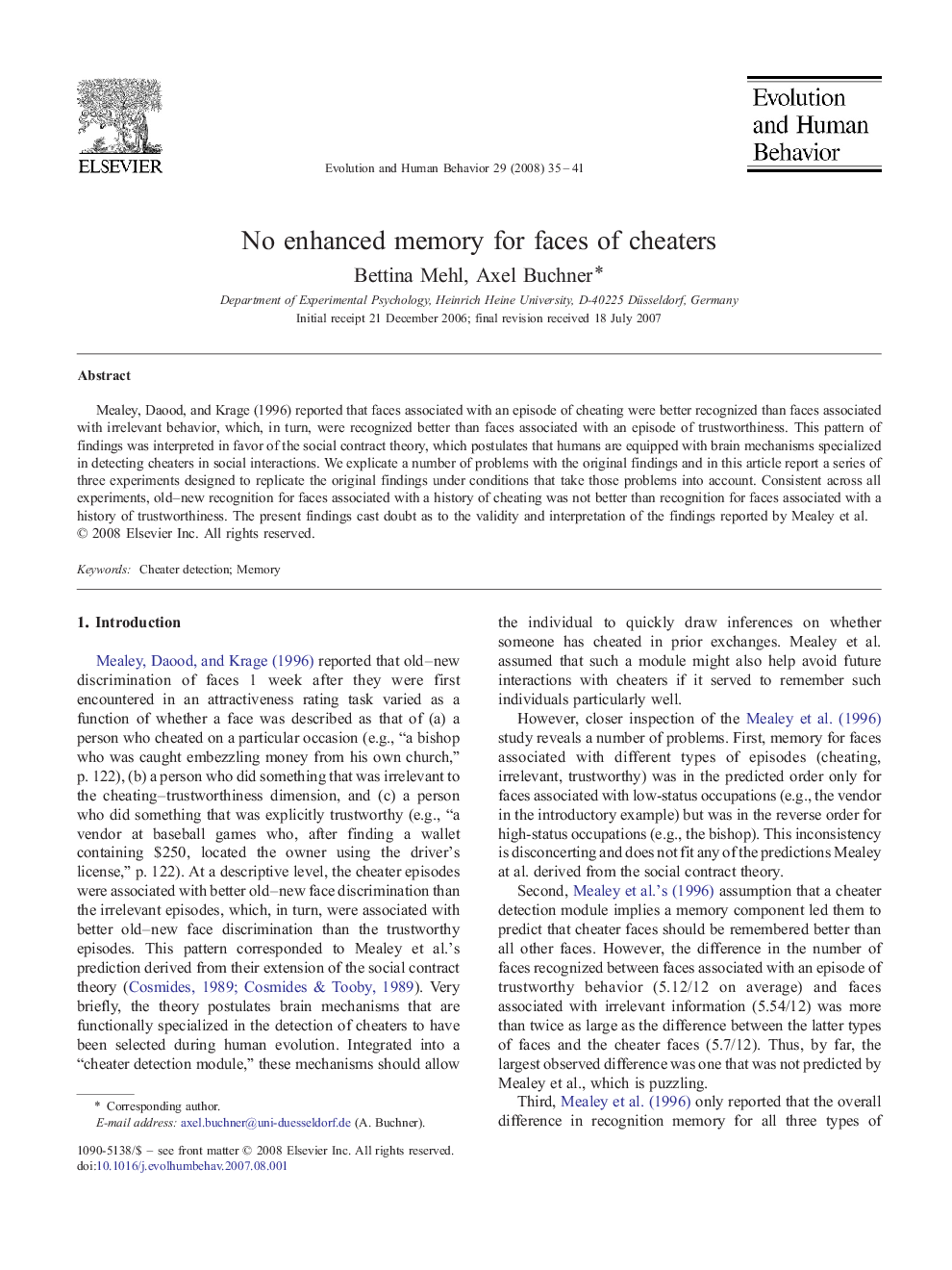| Article ID | Journal | Published Year | Pages | File Type |
|---|---|---|---|---|
| 943454 | Evolution and Human Behavior | 2008 | 7 Pages |
Mealey, Daood, and Krage (1996) reported that faces associated with an episode of cheating were better recognized than faces associated with irrelevant behavior, which, in turn, were recognized better than faces associated with an episode of trustworthiness. This pattern of findings was interpreted in favor of the social contract theory, which postulates that humans are equipped with brain mechanisms specialized in detecting cheaters in social interactions. We explicate a number of problems with the original findings and in this article report a series of three experiments designed to replicate the original findings under conditions that take those problems into account. Consistent across all experiments, old–new recognition for faces associated with a history of cheating was not better than recognition for faces associated with a history of trustworthiness. The present findings cast doubt as to the validity and interpretation of the findings reported by Mealey et al.
